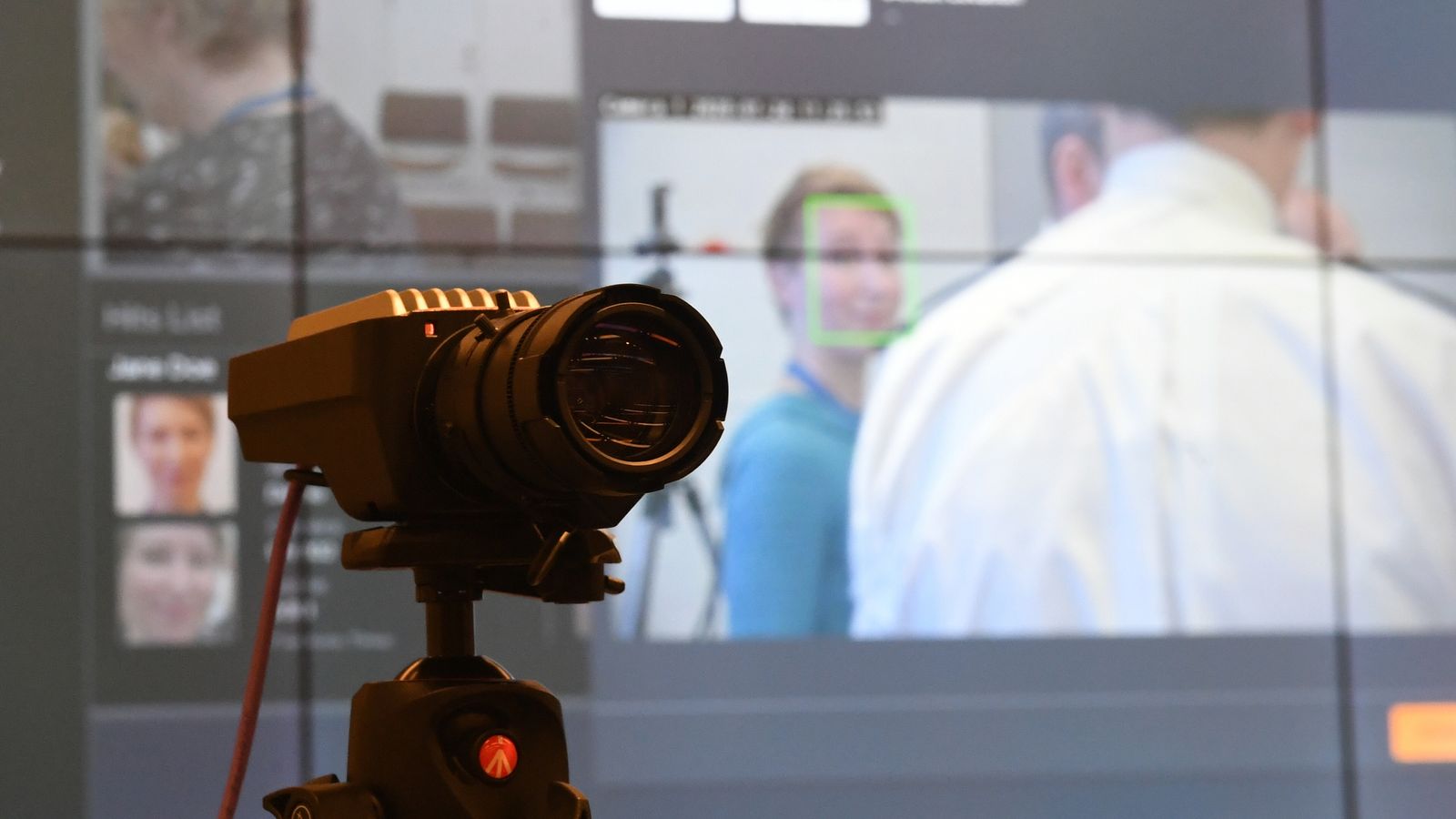The government has come under pressure from retailers to crack down on shoplifting, which they say has surged in the past year.
This is partly due to organised crime and partly because of the cost of living crisis, which has squeezed living standards for households across the board.
The policing minister has presented a solution to free up police resources by integrating passport photos into the police database to find a match for CCTV footage.
Chris Philp said at a fringe event at the Conservative Party conference: “I’m going to be asking police forces to search all of those databases – the police national database, which has custody images, but also other databases like the passport database – not just for shoplifting but for crime generally to get those matches, because the technology is now so good that you can get a blurred image and get a match for it.”
Tory conference latest: Detail of HS2 announcement emerges
Including passport pictures in the database poses a clear threat to privacy. But even aside from these concerns, the measures fail to address the root causes of the rise in shop theft and risk increasing the workload for officers.
This is because false positives are unavoidable when millions of images are scanned using facial recognition technology. The tool can return matches even if images are blurred or partially obscured, producing multiple “matches”.
Onewheel electric skateboards recalled worldwide after deaths
First-ever space debris fine issued after company fails to ‘properly de-orbit satellite’
Who is Sam Bankman-Fried, the former ‘King of Crypto’ on trial for fraud?
It is unlikely the courts would accept a facial recognition computer match as evidence in the same way they accept DNA or fingerprint matches.
This means police officers would then need to sift through and either prove or disprove individuals’ involvement, which creates a significant workload.
Furthermore, the suggested measures overlook a key reason for the rise in shoplifting. By targeting resources towards criminalising shoplifters, the proposals fail to adequately support households facing a generational squeeze in living standards that has left many struggling to afford necessities.
Read more:
Co-op takes £33m hit in six months as shoplifting cases surge
Police must investigate every theft – home secretary
Be the first to get Breaking News
Install the Sky News app for free
‘Building a surveillance state doesn’t address any of those issues’
Silkie Carlo, the director of privacy campaigning group Big Brother Watch, said: “This particular policy doesn’t do what the police say they need, what retailers say they need and it doesn’t help people in need either… Building a surveillance state doesn’t address any of those issues.”
A Home Office spokesperson said technology such as facial recognition can help the police “quickly and accurately identify those wanted for serious crimes, as well as missing or vulnerable people.”
“It also frees up police time and resources, meaning more officers can be out on the beat, engaging with communities and carrying out complex investigations,” they added.
“We are working with policing to enable seamless searching of relevant images where it is necessary and proportionate for them to do so to investigate crime and protect the public.”





